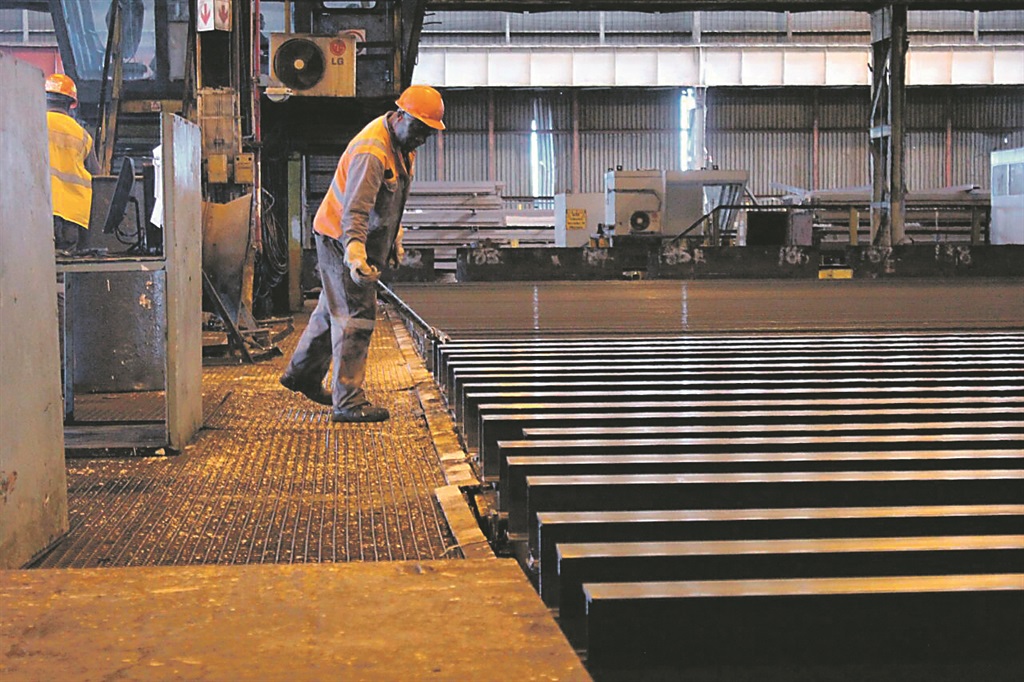
- The Steel and Engineering Industries Federation of Southern Africa announced a three-year proposal for a 4.4% increase across the board in the first year.
- The National Union of Metalworkers of SA wants a one-year deal with 15% across the board.
- Solidarity says it will canvas membership but expects complications in the SEIFSA deal for non-SEIFSA employers.
While the steel and engineering sector has presented a revised wage offer to employees, unions are not optimistic that it will be an easy sell to members.
They say there is still a large gap between the offer and their demands. Negotiations are not simple, either, with multiple structures involved – as well as 1 223 companies with some 167 000 employees.
On Tuesday, the Steel and Engineering Industries Federation of Southern Africa (SEIFSA) announced a revised wage offer in the sector in a bid to strike a deal with five unions at the Metals and Engineering Industries Federation of Southern Africa.
The offer is a 4.4% CPI increase across the board for one year, 0.5% plus CPI in the second and 1% plus CPI in the third year.
The unions negotiating are Solidarity, Uasa, the National Union of Metalworkers of SA (Numsa), the Metal and Electrical Workers of SA and the SA Equity Workers' Association.
Complex process
Numsa and Solidarity told Fin24 that there were several structures negotiating wages in the sector, including the National Employers' Association of South Africa (NEASA) and the Metal and Engineering Industries Bargaining Council (MEIBC).
Unions say the presence of multiple structures in the sector - all with their own negotiation processes - could complicate plans to extend SEIFSA's offer as a deal throughout the sector.
Numsa spokesperson Phakamile Hlubi-Majola told Fin24 that the union had a host of demands for employers, including a 15% across-the-board increase in a one-year agreement.
It also wants all outstanding issues to be concluded within six months, in line with managing committee (manco) agreements.
"We demand that the main agreement must be prioritised, and as soon as we have finalised the agreement, a special manco meeting must be held immediately thereafter to ensure all parties vote to gazette the agreement," said Hlubi-Majola.
Hlubi-Majola said all increases must be based on the actual rates of pay as the current dispensation pushes unions to agree with the "down-varying" of the basic conditions of employment, which she says is done to accommodate employers.
"Our members complain about the fact that there is already no uniformity in the application of the minimum rate and this has resulted in a system where some workers are paid the rate in full, while others are exploited and paid far less than they are entitled to," Hlubi-Majola said.
More talks
Hlubi-Majola said Numsa wanted to continue with discussions to find common ground and resolve the current round of wage talks.
Numsa is consulting members on the way forward and has set up another meeting on 26 and 27 July for another round of talks.
Solidarity general secretary Willie Venter said while SEIFSA is proposing 4.4%, the proposal is based on multiple pay grades, so increases will not apply the same way across the board.
He was also circumspect about the status of the offer as employers have not all weighed in yet.
"We call it a proposed increase on [the] minimum pay grade or wage grade. Salaries of different grades also vary. Skilled, semi-skilled and unskilled employees are in different grades and there will be a differentiation on increase percentages," said Venter.
Final offer?
Venter said he was aware that SEIFSA wanted to extend its agreement to the whole industry and make it one for all employers to abide by. However, he said, they needed the unions to buy in and for SEIFSA to get more employers in the agreement and on board.
"We will not extend an agreement to employers that are not part and parcel to these negotiations and if it is not legally extended. It sounds like a final offer, more or less. [But] it is not [confirmed] as they say they don't have a mandate from employers to table the offer. We will entertain it in the same way," Venter said.
Venter said while Solidarity will be returning to its membership to seek a mandate, members are not likely to understand the need on SEIFSA's part to get employers - who do not negotiate at SEIFSA to begin with - on board with their agreement.
"Wage negotiations are not the same as a decade ago where one group dominated and it was easier to extend an agreement.
"It has drastically changed to two employer blocs with parallel wage negotiations. SIEFSA and breakaway groups like SEIFA [and] NEASA have their own negotiations. This makes extending agreements even more complicated," he said.
